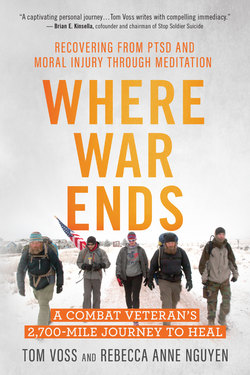Читать книгу Where War Ends - Tom Voss - Страница 21
На сайте Литреса книга снята с продажи.
Оглавление9
TAILSPIN
Jack couldn’t stop yelling at fat ladies. Apparently, it was getting to be a real problem. My social-worker-turned-smoking-buddy had become my coworker at a veterans’ nonprofit in Milwaukee. After we’d smoked together at his house, I couldn’t go back there. I stopped seeing him at his office, too. A year later, Jack walked into the Brady Street nonprofit where I worked because he was looking for a job. His button-down shirts were no longer pressed. He was thinner and had dark circles under his eyes. He had difficulty holding my gaze when we talked. Since I’d seen him last, he’d gotten divorced, left his job as a social worker, and started dating a stripper. He needed a job, but he also needed help.
At the nonprofit was a café where vets could connect over coffee and muffins. There were support groups and fund-raisers and concerts to address issues like veteran homelessness and addiction. There were community organizations and representatives committed to helping vets understand and learn to live with the trauma they carried from war. The woman Jack yelled at was one of those community members, dedicated to helping vets in Milwaukee. Unluckily for her, she visited our offices on one of the rare days when Jack actually showed up for work.
When he met her, he just couldn’t help himself. Jack just had to let her know that she was “too fat.” And the fact that she was “too fat” made him fly into a rage that only he could understand. Or maybe he didn’t understand it at all. I heard the woman had burst into tears during his tirade and that Jack just kept on yelling at her.
See, the problem with veterans helping veterans was that, like a social worker who’s just as messed up as his clients, the people facilitating the support groups and therapy sessions at the nonprofit were also the people who needed them the most. There was me, with my PTSD diagnosis and drinking problem and wounded soul. I was still alive. I was holding down a job. But the thing that had been keeping me awake at night was still keeping me awake. I knew it wasn’t just PTSD, but since I still wasn’t sure what the problem was, I still had no clue what to do about it. And nobody else seemed to, either. Then there was Jack, with his irrational fear of cellulite and new tweaker persona. And let’s not forget Ken, the guy who’d started the organization in the first place. He was a Vietnam vet and the first person in America to get acquitted for murder by claiming PTSD as his defense during a drunk-driving trial.
Then one day Sergeant Anthony Anderson walked into the nonprofit, all six feet four inches and 315 pounds of him. Anthony and I sat down in the open office space on the second floor, which overlooked bustling Brady Street below. I’d just been promoted to vice president of the organization. The operation was expanding, and we were opening another location in another town. We actually had the resources to hire another peer support specialist to help oversee the expansion. I remember because it was the first time I’d ever hired anyone.
“Hey, I’m Tom,” I said, reaching up (and up and up) to shake Anthony’s hand. “I’m the vice president.”
“You don’t really look old enough to be a vice president,” Anthony said, looking down at me.
Anthony was a gentle giant of a man, with kind eyes that sloped downward at the outer corners, like a puppy’s. His wispy curls framed a decidedly square head, and he was such a big dude that he had — no joke — 16 EE–size shoes. Anthony’s mouth was set in a straight line, the perfect, ironic punctuation mark to his highbrow, deadpan sense of humor. We spent his entire interview swapping stories of our mutual deployments as if we were old friends. He was in the infantry, I was in the infantry. He deployed in 2004–2005, I deployed in 2004–2005. At no point did we discuss his work experience or qualifications. I hired him on the spot.
Where Jack had become fast-talking and impulsive, chain-smoking cigarettes down to the filter, disappearing for days at a time, and quite possibly sleeping in the office, Anthony was practical and levelheaded. When he discovered that Ken’s fund-raising strategy amounted to “People will give us money because it’s for a good cause,” Anthony took over. He set specific fund-raising goals and developed clear strategies to meet those goals. He was always overprepared; he’d run through conversations in his head twenty-five times before going into any meeting.
Anthony’s trauma manifested itself in quieter, more introspective ways. While Jack would lash out and I’d drown the past in drink, Anthony would disappear into the remote darkness of his basement any time an emotion threatened to emerge from the past. He’d descend those basement steps in peaceful silence, his considerate attempt to distance himself and his ghosts from his wife and young daughter.
With Anthony on the team, I felt excited about work for the first time in a while. I felt like I was being of service. With Anthony’s strategic mind and me on operations, I felt like we could really make a difference for vets in Milwaukee. Even better, I didn’t feel so alone.
